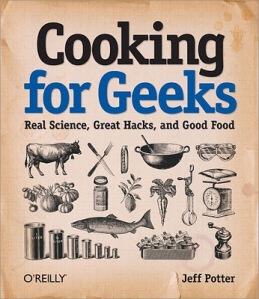
Several years ago, I met up with a childhood friend I hadn’t seen in years. She was in the mood for sushi; I am up for anything I don’t have to cook myself. In short order, I found myself faced with a sampling of dainty and colorful circles known as sushi rolls.
Despite the fact that I apparently dream about sushi when coming off of pain meds, I have had very limited exposure to it. This is okay; it was probably best if I didn’t know exactly what I was eating.
I could identify the rice, and some shavings of carrot. There was something cucumber-like, and a small mound of pureed avocado.
I love avocado.
It is perhaps an odd food to love – a smushy green vegetable with a taste my mother describes as creamy lettuce – but I became obsessed during my running days. As I dreamed up elaborate food fantasies to keep my leg muscles churning, my go-to was always corn chips and smashed avocado with a side of chocolate milk. Yum.
Imagine my delight then when I saw this unexpected favorite on the plate before me. I decided right then and there that I was going to like this sushi thing.
I scooped up a forkful and popped it in my mouth.
Unexpected Fire
My friend stopped mid-sentence, and I watched as her eyes bulged to mirror the horror in my own. Something was terribly, terribly wrong.
Burning erupted like an electric shock through my lips, mouth, and throat. Milliseconds later my friend completely disappeared beneath the torrent of tears that surged from my eyes like a firehose.
“Did you just eat a forkful of that?” she cried.
“What is it?” I gasped.
“Wasabi!”
Let me pause for a moment in case you, like me, have never heard of wasabi. True wasabi is a plant grown in Japan, tricky to cultivate and therefore very expensive. The wasabi we are most likely to encounter outside of Japan is imitation wasabi made from pureed horseradish and dyed green to look like the original. The texture appears deceptively creamy, but since it ignites upon contact with any part of your face, texture quickly becomes a moot point. When applied delicately to a sushi roll, wasabi balances and accentuates the pungency of fish. By the forkful, it tastes like fire.
Two pitchers of water later I was still crying silently into a stack of paper napkins.
“I can’t believe you did that,” she said for the umpteenth time.
“I thought it was avocado!”
Apparently, I was the only one who found it perfectly reasonable to expect a small mound of pureed avocado next to a sushi roll.
I won’t make that mistake again.
But I bet I will make others.
Fullness of Life Includes Painful Lessons
Life is full of painful lessons. Some are flash-in-the-pan, two-pitchers-of-water-and-now-it’s-a-funny-story kind of painful. Some are out-of-the-pan-and-into-the-fire, things-keep-getting-worse-instead-of-better kind of painful.
Both kinds prompt us to keep moving forward, which is the only direction worth moving.
I’ve been thinking of this quote lately from the poem “Benedicto” in Earth Apples: The Poetry of Edward Abbey:
May your trails be crooked, winding, lonesome, dangerous, leading to the most amazing view. May your mountains rise into and above the clouds.

It’s not the typical prose of a blessing. No wind at your back, no sun shining warm on your face, no soft rain falling upon lush Irish fields.
And yet.
Something in the grit of the words hooks me. Like flames on the tongue. The discomfort is not there only to endure. The discomfort is there because in the right way and the right amount it adds rather than detracts.
Sometimes you have to be uncomfortable in order to experience the fullness of life.
Even the most sugar-loving among us would get bored of eating nothing but sugar. And maybe wasabi isn’t so good by the forkful, but when blended in the right proportions, it gives a beautiful spice to an array of dishes.
More Than a View
This is what I’m trying to say:
The fullest life is not the one where personal comfort is prioritized above all else. Like a muscle being stretched, sometimes we need to be stretched. We need be uncomfortable, awkward, unsure. We need to go when we’d rather stay. We need to try when we’d rather give up. We need to fail, and cry into a stack of napkins, and take in the view.
It’s not just one amazing view at the end that matters. Because in the end, it’s not about the view at all.
It’s about who we have become along the way.
Get out there and try life, my friends. And if it’s creamy and green, try just a little to begin.
This post was first shared at inspireafire.com. I hope it spiced up your day! 🙂



 Not so very long ago, a friend lent me a book called Cooking for Geeks. This book was intended to explain, in precise and empirical language that a scientist like me could appreciate, exactly how to do amazing things in the kitchen. Like fry an egg without causing an explosion.
Not so very long ago, a friend lent me a book called Cooking for Geeks. This book was intended to explain, in precise and empirical language that a scientist like me could appreciate, exactly how to do amazing things in the kitchen. Like fry an egg without causing an explosion.